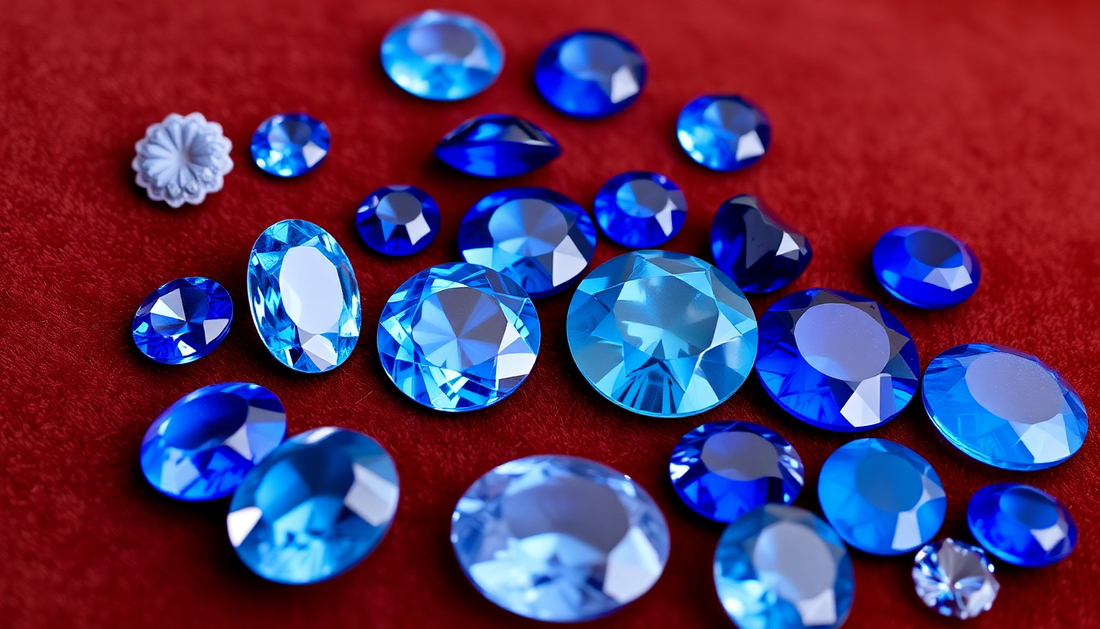Blue Beauty: An Introduction
Marine biologist focusing on ocean conservation and plastic waste reduction.

Marine biologist focusing on ocean conservation and plastic waste reduction.

— in Sustainability and Carbon Offsetting
— in Sustainable Living
— in Sustainable Living
— in Sustainable Living
— in Sustainable Living
The beauty industry is constantly evolving, and a significant shift is underway with the emergence of "blue beauty." This movement goes beyond simply using natural ingredients. It's about a holistic approach that aims to protect and regenerate our planet's oceans.
Blue beauty is a philosophy that prioritizes the health of our oceans and marine life through sustainable practices in the beauty industry. It encompasses sourcing ingredients responsibly, minimizing environmental impact, and supporting ocean conservation. This approach marks a departure from traditional beauty standards.
At its core, blue beauty is built upon several key principles. These include using marine-derived ingredients responsibly, minimizing waste, and choosing packaging that is eco-friendly. It also emphasizes transparency in sourcing and production processes. The movement promotes a circular economy approach.
While green beauty focuses on plant-based and organic ingredients, blue beauty specifically targets the use of marine resources. Blue beauty goes further by actively seeking to regenerate and improve the environment. It's a step beyond minimizing harm, aiming to create a positive impact. Beauty Heroes launched the Blue Beauty movement to celebrate brands that strive to make the planet better.
Marine ingredients are increasingly recognized for their potent skincare benefits. They are also abundant and can be sustainably harvested. These ingredients range from microalgae to seaweed, each offering unique properties.
Microalgae are photosynthetic organisms that produce beneficial metabolites. These metabolites offer anti-aging, sunscreen, and skin-whitening effects. They are also known for their anti-blemish and anti-microbial properties. Cosmetics Design Europe highlights the effectiveness of microalgae in cosmetics. They can prevent inflammation, repair skin, and protect against UV damage.
Macroalgae, or seaweed, is another valuable resource in blue beauty. Different types of seaweed offer a wide range of benefits. Brown seaweeds and microalgae are rich in fucoxanthin, while others are rich in astaxanthin. These compounds are strong antioxidants that protect and nourish the skin.
Responsible sourcing is crucial for blue beauty. It involves cultivating marine ingredients in bio tanks that replicate the ocean’s natural environment. This approach avoids over-harvesting from the sea and ensures the long-term viability of marine ecosystems. Brands like Beauty Kitchen are pioneering this method.
Traditional beauty practices often contribute to environmental harm through harmful ingredients and unsustainable packaging. These practices need to be addressed.
Many common skincare ingredients are harmful to marine life. Oxybenzone and octinoxate, often found in sunscreens, are particularly damaging to coral reefs. Parabens, triclosan, silicone, artificial fragrances, and sulfates also pose significant risks. UpCircle Beauty provides a detailed list of these harmful ingredients. They can disrupt ecosystems and harm marine animals.
Plastic packaging is a major contributor to ocean pollution. 11 million tonnes of plastic end up in our oceans each year. This plastic harms marine life and pollutes our waterways. The beauty industry must shift towards sustainable packaging solutions.
Embracing blue beauty involves making conscious choices that support ocean health and sustainability.
Selecting products that are free from harmful ingredients is essential. Look for cosmetics that specifically avoid oxybenzone, octinoxate, parabens, and other damaging substances. Opt for mineral-based sunscreens and natural formulations.
Sustainable packaging is a key component of blue beauty. Choose products with recyclable, refillable, or biodegradable packaging. Brands are increasingly adopting materials like glass and recycled plastics. Lifestyle Packaging highlights the shift towards eco-friendly packaging.
Supporting brands that are actively working to regenerate and improve the environment is crucial. These brands often invest in innovative sourcing methods and conservation efforts. Look for companies that prioritize transparency and sustainability in their practices.
The future of skincare is increasingly intertwined with sustainability, with blue beauty principles leading the way.
Consumers are becoming more aware of the environmental impact of their purchasing decisions. They are actively seeking products that align with their values. This trend is driving the demand for sustainable beauty solutions.
Minimalist skincare routines, or "skinimalism," are gaining popularity. Consumers are moving away from complex routines towards simpler, multi-functional products. This trend reduces overall consumption and waste.
Technology is playing a significant role in the development of sustainable skincare. AI-driven diagnostics and at-home devices are becoming more common. These tools allow consumers to personalize their skincare routines and reduce product waste.
Making the switch to blue beauty can be simple and impactful.
Look for products that highlight their commitment to marine conservation. Check ingredient lists for ocean-harmful substances. Choose brands that use sustainable packaging and ethical sourcing practices.
Start by replacing products that contain harmful ingredients. Gradually transition to brands that prioritize sustainability. Consider using multi-functional products to reduce the number of items in your routine.
Ethical consumption is a cornerstone of blue beauty. It involves making informed choices that support both personal well-being and environmental health. This includes understanding the impact of your purchases and supporting brands that align with your values.
Blue beauty extends beyond skincare, influencing overall wellness and ocean conservation.
The principles of blue beauty promote a holistic approach to wellness. It encourages a connection with nature and a mindful approach to consumption. Using natural ingredients that are gentle on the skin can also enhance overall well-being.
By embracing blue beauty, we contribute to the broader effort of ocean conservation. Supporting sustainable practices helps protect marine ecosystems and biodiversity. It also promotes awareness about the importance of our oceans. The health of our oceans is vital to life on earth. Vogue Business highlights the critical role of our actions in the next 10 years.

Key Takeaways: